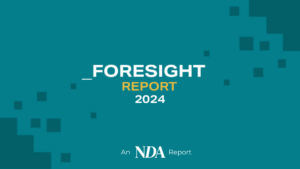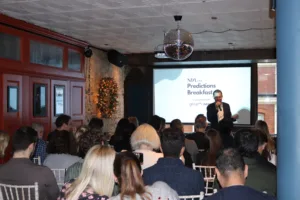The second part of our in-depth discussion with Ed Steer of Sphere Digital Recruitment.
Today we look at the interview process, virtual hiring and issues around mental health
In our 2020 salary survey, flexible working was the no.1 desired benefit across the digital sector with a quarter of respondents and this hasn’t changed in 2021. Everyone who took part in our survey were asked what their most important factor is when looking for a role: 74% answered ‘pay’ followed by 53% answering ‘flexible working from home policies’. One respondent shared “the pandemic has made us realise that flexible working is now one of our primary requirements” having come to realisation that working from home has increased their productivity levels: 56% say they have got more work done in less time.
Companies who have introduced hybrid working can see its benefits when allowing employees to work from home, alternatively there has been mixed views as 15% find WFH to be mentally draining and repetitive.
A new WFH policy proposal has been introduced which “would allow all UK employees to request a flexible working arrangement from their first day as a new employer”, however, TUC general secretary Frances O’Grady state’s that “ministers claim that employers can still turn down any or all requests for flexible working” (BBC news, 2021.)
“9 out of 10 employees want partial flexibility to choose where they work” (Mind.org.uk, 2021); our results coincide with this as 53% of our respondents have stated that flexible working is one of the most important factors when looking for a role.
Companies maintaining culture is just as vital as the other factors stated in this report. Lockdown limited the opportunities employees had in forming relationships with colleagues in person. Whereas now that people are allowed to return back to offices, promoting a better work culture can gradually continue as 22% found this to be just as important. Companies can do this by finding the right balance of days people come into the office as 54% prefer working 2-3 days in the office; this can help companies plan team activities and form relations etc.
Interview Processes & Experience
From our survey we have witnessed that companies have found the market to be extremely
competitive post lockdown. As all our clients said they had plans to hire in 2021 but 84% said there were “a lack of candidates” and 40% of “candidates taking other job offers”. 16% of our clients found the “processes too long” with only a few businesses (4%) saying they found hiring easier this year.
57% of businesses voted that they typically have 2-3 interview stages. One client said, “We always run 3 rounds of interviews – introduction, 2nd round and presentation”; However, 54% of candidates have said they normally experience 5-6 interview stages as one person said “too many interviews with too many people who aren’t the decision makers or relevant to the position.”
This has shown a significant rise in the number of interviews in comparison to previous years as 29% have claimed that there are more interviews than usual, however the majority of people (59%) have said that “the stages have remained about the same”.
Having a long interview process can be a factor as to why clients are not finding the right candidate, as companies who have shorter processes may win over that candidate 1st.
40% claimed that the hiring processes have become slower than previous years due to lack of candidates. One hiring manager said “often it’s to do with our time, as we are busy and making time for interviews is difficult. Any delay seems to result in missing out on candidates as the market is so fast-paced.” therefore, losing out on talent.
We also asked clients if they would still continue interviewing other candidates after already finding a suitable candidate and 57 said ‘yes’; After witnessing concerns about a competitive market, it shows that companies are not being quick to decide or are hesitant therefore losing out to top talent due to doubts as one candidate said, “companies and recruiters are still conservative and risk averse in hiring.” Some of the factor’s companies should consider when continuing to interview is that there may not be a more experienced or qualified candidate, and this may mean that you lose out on them to competitors.
Virtual Hiring – Loss of human touch
Candace Nicolls, Senior Vice President at Snagajob voiced that “even for businesses resuming in-person operations, I expect that virtual and automated interviews will instead replace many in-person touchpoints, helping to accelerate timelines” (SHRM, 2021). However, from our survey it has been recognised that respondents are losing the human connection that comes from physical interviews and there is a limited chances of good impressions that can sometimes be the deciding factor for many companies and candidates.
During lockdown, all interview processes were being held online with a few being held in the office where necessary. The shift in interview processes has been drastic as both candidates and companies had to adjust to lockdown, realising the lack of human connection that came with it as one candidate stated, “interview was through teams, making it more difficult to sense people”. Candidates also were lacking a sense of office culture and the working environment they would potentially be joining, making it harder for them to accept offers due to uncertainty.
There has been a mixed view on interviews this year as one candidate claimed, “their interview experience wasn’t great as they didn’t like being interviewed online or on Zoom”. Online interviews can be a major obstacle for both clients and candidates when it’s decision time; a reason for this is due to the lack of human connection that face-to-face interviews have. Alternatively, some candidates preferred online interviews as one person said they “saved money and time by not having to commute’.
Mental Health – How to support your employees
Our survey presents a significant amount of people (56%) experienced burnout this year and 40% said they felt they worked a lot more than previous years. We also asked candidates if they’ve been supported by their current company. Around 65% said “yes” and one person said, “communication and avenues for help in all areas, whether work or personal is offered”. However, a significant amount (34%) said “no” with the following reasons: “More work was given with less resources”, “Insufficient staffing, not replacing people etc.” and “lack of communication and clarity”. These were some of the comments left by candidates who felt a lack of support from their companies.
The lack of support from some companies can be due to the impact of the pandemic, where the lack of presence from HR could have been the biggest challenge candidates faced during a difficult year. Companies should try to accommodate to some of these pressures that employees face, however 56% of employers said, “they would like to do more to improve staff wellbeing but don’t feel they have the right training or guidance” (Mind.org.uk, 2021).
Some have said to have found working from home to be “mentally draining and repetitive” and one person said “whilst my HOD is supportive, the wider company is being quite strict and doesn’t seem to trust us to WFH” – finding the right balance of days in the office vs at home can prove to be beneficial for employees. One employee said, “being able to WFH has helped mitigate feeling burn out.” Whereas another said, “the market is good, but needs more interaction and office time”.
Therefore, providing employees a personal choice to either work in the office or from home can prove to be beneficial as 56% have said their productivity levels a lot better when WFH. Additionally, monitoring employee’s mental health can help companies provide support where needed.
Summary
We’ve all felt how competitive the market has been in 2021; Despite a record-breaking number of vacancies and 68% of people looking for a new role in 2021, businesses have quickly realised that the increase in people considering a move, hasn’t correlated in an abundance of candidates. Instead, candidates have a lot of choice of roles and it’s paramount the businesses create efficient interview processes and pay particular attention to retention.
We found that over half (53%) of people surveyed would accept a counter offer but how can we catch people before they hand in their notice?
In 2021, 76% of people leaving their role, left for ‘better opportunity’ followed by 46% cited ‘more pay’. Perhaps unsurprisingly, given what a seismic change 2020 was to so many people, 39% of people surveyed said the pandemic had changed what’s most important to them in their career.
Streamlining interview processes
27% of people surveyed experience 4 or more interview stages before being offered a role. In order to stay competitive, interview processes should be as short as possible, by minimising the processes, you can stay ahead of the competition.
If candidates have been sent by recruiters, eliminating an initial telephone interviews and moving straight to video interviews with hiring managers is key as the qualifying has already taken place prior to the candidate being sent.
Candidate experience was polarising, with some citing that “moving online has the advantage of not losing lots of time travelling to interviews that may go nowhere”, whilst others felt that “it’s been a large waste of time with too many interviews with too many people who aren’t the decision makers or relevant to the position.”
Addressing mental health to reduce attrition
After a tough year, many businesses need to address the ‘burnout’ of their employees: 52% of
people surveyed experienced this in 2021. Some of our respondents reported feeling “mentally drained” and frustrated with the “lack of communication”. Having regular check-ins is paramount to being in the know about how employees are feeling this year.
Flexible working was the no.1 desired benefit in our last Salary & Benefits report and this continues to be sought after. 2020, despite the many challenged, was an opportunity for many businesses who hadn’t previously consider a hybrid-model a chance to find ways of working that were sustainable. 84% of people felt that working from home has improved or was at the same levels to working from the office.









